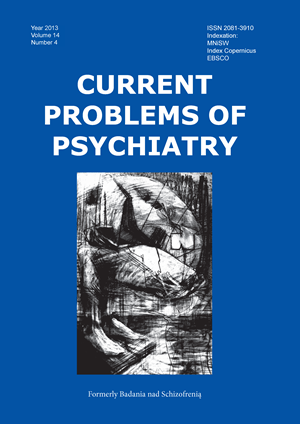Institutional approach as a possibility of amplification of research in psychological and interdisciplinary spheres
Keywords:
social institution, life of an individual, institutional approach, scientific theories, psychology, cross-disciplinary research, sociological frame, psychological research, institutional economy, normtypeAbstract
The article is aimed at discussing theoretical issues of examining the possibility of using institutional approach in psychological science. It is emphasized that complementarity of interrelated scientific fields of knowledge can serve to enhance cross-disciplinary research, eliminating existing restrictions that is primarily concerned with the conceptual apparatus. The possibilities of integration of scientific knowledge and the perspectives for its deepening in the context of psychological science based on the analyses of the concept of social institution and institutional approach implementation in economics, sociology and law are analyzed.
It is assumed that such a step will reduce the risks of inappropriate interference in the sphere of interrelated disciplines. It is argued that the harmonization of terminology in the context of understanding of social processes will promote research of social institute phenomenon in social psychology. The article also provides a list of scientific sociological and institutional economics theories, which can be useful in the context of psychological research.
The effect of diluting the importance of scientific achievements is emphasized, if their interpretation cannot be correlated with the life of a specific individual.
References
1. Xоджсон Дж. Институты и индивиды: взаимодействие и эволюция. Вопр. Экон., 2008; 8: 45-61.
2. Гавра Д. Социальные институты. Социально – полит. жур., 1998; 2: 123-132.
3. Москаленко В. Соціальнапсихологія. Киев; Центр навч. Літератури: 2005.
4. Система социологического знания: уч. пос. сост. Г. Щёкин. Киев; МАУП: 2001.
5. Гуслякова Л. Социальная работа как научная теория, деятельность и учебная дисциплина. Барнаул: 1995.
6. Казмиренко В. Социальная психология организации: монографія. Киев; МЗУУП: 1993.
7. Постсоветский институализм. ред., Р. Нуреева, В. Дементьева. Дoнeцк: Каштан: 2005.
8. Бень О. Т. Інституоналізація: теоретична інтерпретація поняття. Вісник Львівського унів., 2012; 6: 181–190.
9. Вовкогон Ю. Інтитуційний підхід до вивчення соціальних явищ. Грані, 2011; 3 (77): 91-95. [Режим доступу: http://archive.nbuv.gov.ua/portal/Soc_Gum%20/Grani/2011_3/S-22.pdf].
10. Клейнер Г. Эволюция институциональных систем. Мoсквa: Наука; 2004.
11. Макеев С. Концепция институционально воспроизводимых социальных неравенств. Социология: теория, методы, марк., 2001; 4: 32–49.
12. Макеєв С. Соціальніінститути: класичні тлумачення і сучасні підходи до вивчення Соціологія: теорія, методи, марк., 2003; 4: 520.
13. Гетьман Є.Сучасні теоретико-правовіконцепції-громадянськогосуспільства. Юрист Укр., Киев; 2011; 3(16): 5-9.
14. Петришин О. Право як соціальне явище: особливості юридичного підходу. Проблеми філософії права., Киев; 2007: IV-V: 73–83.
15. Тур М. Некласичні моделі легітимації соціальних інститутів: монографія. Киев; ПАРАПАН: 2006.
16. Бергер П. Социальное конструирование реальности. Трактат по социологии знания. Мoсквa; Медиум: 1995.
17. Попович Г. Умови інституалізації соціальної роботи в Україні: автореф. дис.. –канд. соц. наук: 22.00.03. Киев; 2004.
18. Цвік М. Праворозуміння (значущість повторюваності суспільних відносин для його дослідження) . Право Укр., 2010; 4(27): 22-29.
19. Щепанский Ян. Элементарные понятия социологии. Мoсквa; Прогресс: 1969.
20. Matsaert H. Institutional analysis in natural resources research. Socioeconomic Methodologies for Natural Resources Research. Best Practice Guidelines. Chatham, UK: Natural Resources Institute, 2002.
21. Scott W. R. Institutions and organizations. Thousand Oaks, CA: Sage Publications, 1995.


